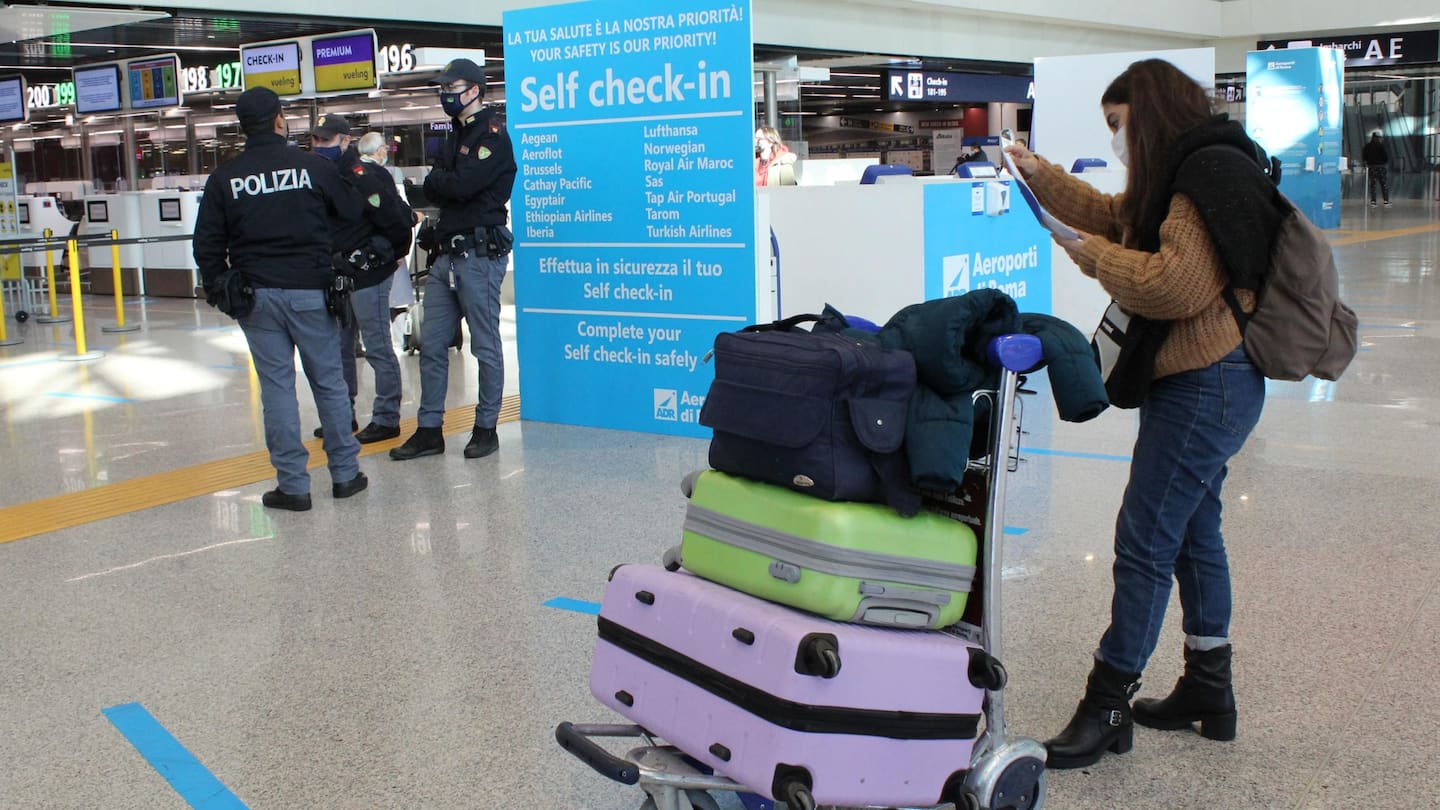Delta announces quarantine-free flights to Rome, raising hopes for more travel corridors

It would be the first such quarantine-free travel corridor between the United States and Europe, and industry advocates hope that it could become a role model for how air travel can resume safely after a year that has forced many airlines into bankruptcy or mass layoffs.
Transatlantic flights are considered some of the most lucrative routes, and their resumption would offer airlines some relief, even though air travel may not return to pre-pandemic levels until 2024 or 2025, according to some estimates.
“Carefully designed covid-19 testing protocols are the best path for resuming international travel safely and without quarantine until vaccinations are widely in place,” Delta executive Steve Sear said in a news release.
Whereas the idea of travel corridors was pondered within weeks of the pandemic grounding planes around the world, arrangements have in practice mostly been limited to nations with similarly low infection rates, such as Australia and New Zealand. This appears to slowly be changing, as some of the more recently established travel corridors have for the first time included regions with surging case numbers, signaling a growing willingness among airlines and some governments to experiment with pre- and post-flight testing as a universal solution.
The experimental Atlanta-Rome corridor is expected to launch Dec. 19, after Italian authorities have provided the legal framework for it, and European or U.S. travelers heading to Rome would need to test negative for the novel coronavirus several times to be exempt from the otherwise mandatory 14 days of quarantine in Italy.
Passengers set to embark on the new route will need to take a polymerase chain reaction (PCR) test up to 72 hours before the flight, followed by rapid tests in Atlanta and at the destination in Rome, according to Delta. Rapid tests provide results within minutes but are not as accurate as PCR tests.
No start date or exact procedure was provided for the connections between New York and Rome.
For now, the corridor won’t allow Americans to travel to the European Union for tourism purposes, since a travel ban remains in place in both directions. So far, most Americans can enter the European Union only for reasons deemed essential, such as some types of work or studies. But Reuters reported Wednesday that the Trump administration may be considering lifting its own travel ban on most Europeans — a move that, if confirmed, could encourage the E.U. to eventually relax its entry restrictions, too.
“Quarantines don’t work, they are inefficient and hard to police,” said the chief executive of Rome’s airport network, Marco Troncone, according to the Financial Times. “It’s hard to convey this message to governments and policymakers, but I think we’re close to a breakthrough.”
Rome’s airport network said in a news release Thursday that additional travel corridors could connect Rome to several German airports.
Some governments have been more open to the airline industry’s insistence on replacing quarantines with coronavirus tests than others.
The Canary Islands — an autonomous Spanish region to the west of Africa — has remained open to tourists from continental Europe, even as daily new coronavirus cases in France, Germany and other countries surged to record highs in recent weeks. Travelers from risk areas need to provide a negative PCR test taken within 72 hours of arrival to enter the region, but they do not need to quarantine.
Preflight testing has faced criticism, however, because it cannot spot travelers who were infected with the coronavirus shortly before or during the flight. It often takes days for infected individuals to test positive for the virus, which is why several European countries recently toughened their rules for travelers arriving from countries with high infection rates.
Germany now allows returnees from risk areas to skip quarantine only by taking a test five days after arrival. Previously, travelers could skip quarantine by taking a test shortly before or immediately after embarking.
Besides the upcoming Rome flights, a number of trials are underway to examine whether testing could replace quarantines.
A preflight testing program has been launched by British Airways and American Airlines to gather data on the accuracy of such measures and to inform the British government’s decision-making, the Guardian reported. German flag carrier Lufthansa similarly announced earlier this month that it had purchased 250,000 antigen rapid tests for a trial of coronavirus screenings on select flights. Neither of the two trials currently allows travelers to be exempt from local quarantine requirements, however.
Other airports or airlines have introduced testing to provide passengers with an additional sense of safety. Meanwhile, Finland’s capital city airport recently deployed coronavirus-sniffing dogs to support scientific research on whether canines can screen for the virus with a higher success rate than traditional tests.






